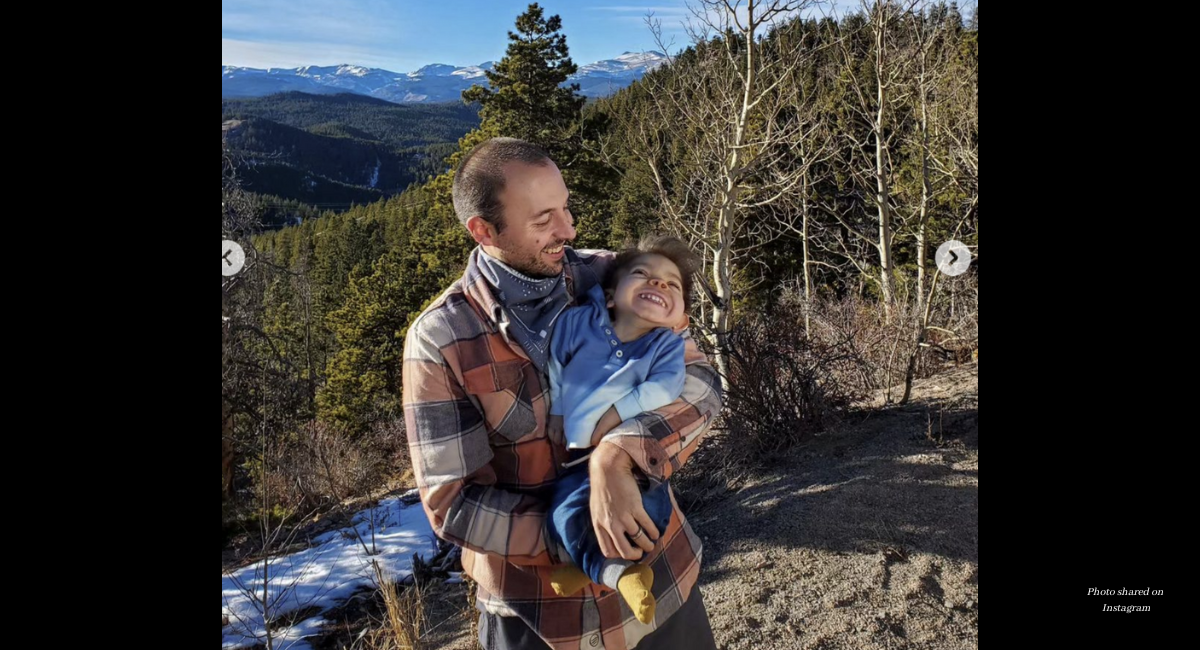“Giggling.” ”Joyful.” ”Exuberant.” Those are the words Lewann Babler used to describe her terminally ill son Leo, who died in January of 2022 after seven-and-a-half short, but adventurous, years of life. In a story for Outside magazine, Babler shared the story of her son’s brief, “big energy” time here on earth, especially his love for the great outdoors.
Leo was born to parents Lewann and Ryan of Wisconsin in May of 2014. After a healthy pregnancy, the Bablers were taken completely by surprise when their infant son received a tragic diagnosis. Leo had rhizomelic chondrodysplasia punctata (RCDP), a life-limiting and extremely rare form of dwarfism. Though he was a normal weight at birth, RCDP’s impacts on Leo’s musculoskeletal, nervous, and respiratory systems meant that physically he would remain “essentially a perpetual infant,” unable to walk or talk or even sit up by himself. His parents were taught to feed him through a G-tube, a feeding tube surgically inserted into the stomach. He needed multiple eye surgeries in his first year of life to remove cataracts, and part of his morning routine involved his parents inserting contacts so that he could see. Lewann and Ryan were told Leo was terminally ill and wouldn’t live long; likely just a few years, but perhaps as many as five.
Lewann recalled Leo’s first weeks of life, which were spent at Children’s Minnesota Hospital not far from their home, as feeling like “standing at the base of a mountain made of grief and despair.” Gradually, as they adjusted to the tasks of their son’s special needs and the emotional weight of Leo being declared terminally ill, Lewann and Ryan resolved to focus on the good, and what was in their control.
“Despite the story Leo’s doctors and other medical caregivers told us about how difficult his life would be, we still had hope,” Lewann said. “We began researching holistic, complementary, and alternative therapies that might make Leo’s life, and our lives, better. We wanted to nurture his unique body, and we poured everything we could — financially, physically, emotionally, and mentally — into finding creative solutions to encourage Leo to thrive, to be happy and healthy, for as long as possible.”
In another version of Lewann’s life story, Leo might never have come to be at all. “I’d never been the mom type,” Lewann reflected. “When I was little I didn’t play with dolls, and I never babysat the neighbors’ kids. Before I met Ryan, having children wasn’t a sure thing.” But dating her now-husband slowly shifted her perspective. Ryan “was kind, smart, sensitive and had a quiet confidence unlike anyone I’d ever met. He adored our friends’ babies and was a natural with them. My awkwardness around them seemed balanced out by his ease.” Over time, a plan evolved: “get married, move closer to friends and family, and have kids.” Lewann’s career plans were even impacted by their shared goals. She pursued massage therapy certification, “figuring that a job with flexible hours would be perfect for a new mom.”
Even after the heart change that led Lewann to openness to motherhood, Leo’s profound medical needs stretched both parents’ hearts immeasurably further. They said, “much of our time during Leo’s first five years was spent trying to slowly let go of who we thought we were and what we thought our life would be.”
When Leo was one, Lewann and Ryan discovered his voracious love for nature and being outside. Over the next few years, the threesome and their two dogs walked and hiked to Leo’s heart’s content, capitalizing on the excellent overall health he enjoyed, despite doctors’ proclaiming that he was terminally ill and would die quickly.
After his fifth birthday, the family moved from Wisconsin to Colorado. And there, on one of their frequent hikes, Lewann and Ryan discovered that Leo didn’t just love the outdoors. He loved being carried outdoors. “Over the next two and a half years, we carried him along more than 1,000 miles of trails all over Colorado.” Around his sixth birthday, Lewann and Ryan retrofitted a cargo van to accommodate Leo’s particular needs, so they could take weekend hiking and camping trips together. And everywhere they went, they carried their son, even at mountain elevations ranging from 7,000 to 12,000 feet. Those were happy days for all the Bablers. “The aspens were never more golden, the skies never more blue, and Leo’s joy never more buoyant,” she said. “Our hearts were as full as they’re ever likely to be.”
On trail after trail, Leo touched the lives of those he met. “Hikers we encountered were charmed by his beaming, no-matter-the-season smile and commented on his bare or moccasined feet, Colorado baseball cap, or baby-size Patagonia fleece. ‘Way to get them out young!’ they’d say, with no idea of his actual age.”
In the fall of 2021, when Leo was seven years old, his prognosis finally started to catch up with him, as his small body slowly shut down. One morning in mid-January of 2022, Leo drifted off to sleep and never woke up.
“He wasn’t ill,” Lewann wrote in his obituary, “his little body was simply exhausted.”
Lewann called the feeling of Leo’s absence “viscerally painful, a gaping hole.” She and Ryan moved away from Colorado and its constant reminders of their son, but they continue the outdoor adventures that united them as a family. A series of children’s books on the beauty and importance of being in nature, starring Leo, is in the works.
Looking from the outside in, some would see in Leo’s life only a cascading, unending series of tremendous needs and inconveniences. And it’s certainly true that his diagnosis came with an outsized share of challenges compared to the more humdrum lives many of us lead. But Leo’s life, and his needs, were also an invitation to truly big-hearted love, extended not only to those closest to him, but to all those who encountered him.
That kind of adventurous love changes the world.







